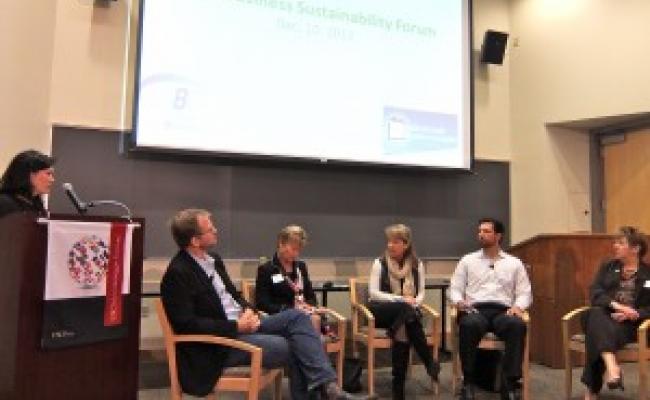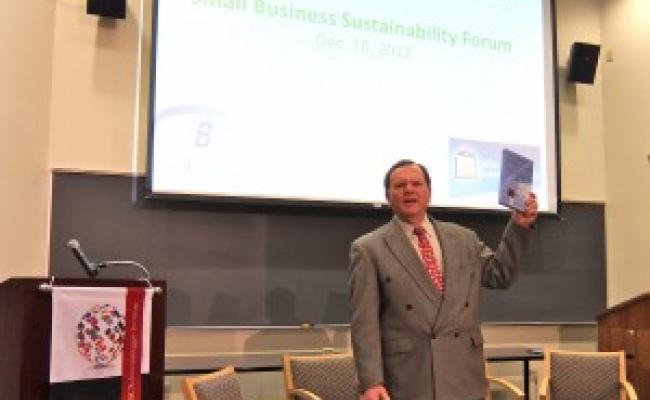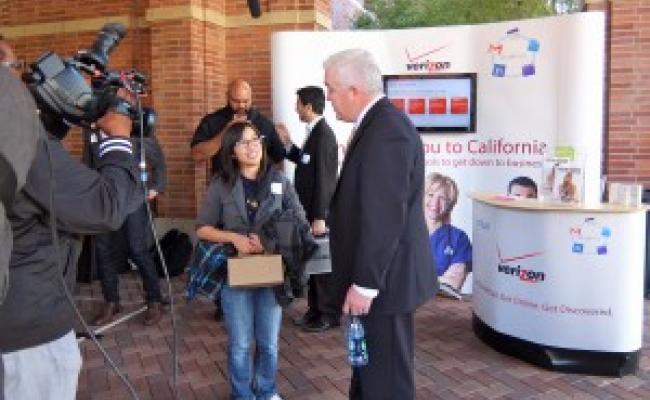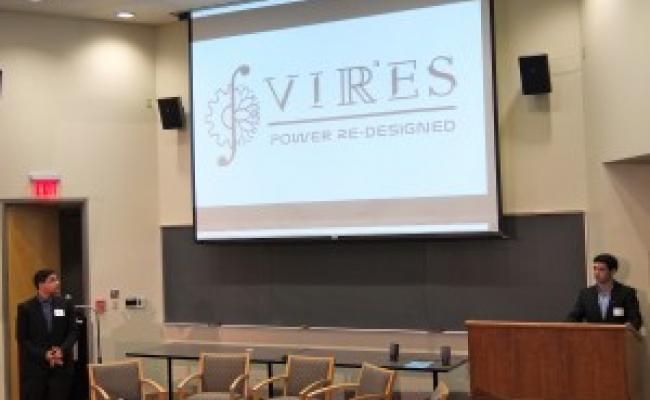Sustainability and Small Business
By Bonnie Reiss, Global Director, USC Schwarzenegger Institute
The USC Schwarzenegger Institute partnered with Verizon, the California Small Business Association, and the Los Angeles Business Council to organize a forum on Monday, December 10, 2012. The participants in the forum explored an important issue, namely: how can small businesses grow while maintaining the commitment to being green? The Institute was pleased to help organize this event because it highlighted two of our policy areas, the Environment and the Economy, and prioritized real world solutions to serious on-the-ground challenges. Moreover, the focus on small businesses was an important feature of the forum. Small businesses are the engine of economic growth both in California and around the nation, employing half of all private sector employees, generating 65% of net new jobs over the past 17 years, and spending approximately $60 billion a year.
Thought leaders from Verizon, the state and federal governments, NGO’s and businesses attended the event. Margaret Serjak, President of Verizon California, set the tone during her welcoming remarks when she noted that sustainable business policies are not only the right thing to do, but can also provide significant benefits to a company’s bottom line. Serjak illustrated her point with an example from her own company. Verizon stopped widely distributing the “white pages directory” and began sending it only to customers who requested it. By taking this step, the company was able to reduce its paper usage by 1,900 tons of paper, the equivalent of the maximum takeoff weight of more than 4 full 747 airplanes. Other speakers shared sustainable and cost saving opportunities for business data centers, fleets and transportation, packaging, waste, water usage and lights and energy use—the ideas all reflected quite a bit of common sense but were also very inspiring. Equally important, all the examples highlighted ways in which sustainable practices could save companies substantial sums of money.
The forum included information panels, which focused on exciting and affordable technologies currently available to improve sustainability and efficiency. The panels provided small businesses with useful information, tools, and networks that would help support their growth while maintaining sustainable practices.
Terry Tamminen, an Institute Board of Advisor and former California EPA Secretary, gave the keynote speech, which focused on practical yet high impact strategies that both individuals and businesses could adopt immediately. Tamminen’s talk reminded us that we are all CEO’s in our own home and all have the capability of adopting sustainable practices in our everyday lives. Tamminen’s new book “Cracking the Carbon Code” helps demystify what he calls the carbon code, and helps all of us to understand our individual roles in both contributing to climate change—and helping to solve this problem.
The final presentation of the day, which was my personal favorite, came from the Kairos Society. The Society is an organization that supports and empowers college pioneers who will push the world forward through entrepreneurship and innovation, and was founded by USC student Alex Fiance in 2009. A handful of Kairos innovators from various universities gave brief presentations on products and innovations they created to advance sustainability and that are available to small businesses.
The networking continued as presenters and attendees flowed outside to Childs Way where some of the same innovative technologies discussed at the forum were being demonstrated. The continued conversations also provided USC students an opportunity to experience some of what the forum attendees discussed and explored throughout the day.




